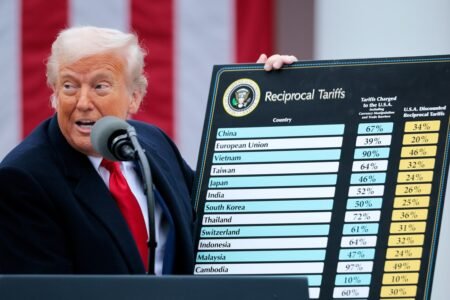South Korea’s National Pension Service (NPS) is mulling over the prospect of turning to blockchain to streamline its accounting processes.
A local news outlet reports that the NPS is opening the doors for blockchain service providers to pitch Web3-based solutions to the pension board. Currently, the NPS controls 1.2 trillion won (US$836 billion), and the bulk of the blockchain-based solution will revolve around its fund transaction systems.
The NPS will seek solutions for increased security and transparency for its funds while streamlining deposits and withdrawal processes.
Under the migration, every NPS transaction will be stored on a distributed ledger and accessible to the public. However, integrating blockchain does not translate to an NPS investment of pension funds in digital assets like BTC or Ethereum (ETH).
“It appears that they are considering introducing blockchain technology as a means to further strengthen the security and transparency of the fund management system currently in use,” said a pension expert.
“In particular, they must have judged that they needed to build a safer and more reliable system as they are managing the nation’s valuable pension assets,” added the expert.
While considering pitches from Web3 service providers, the NPS reportedly prepares a feasibility report for the transition to blockchain for its pension fund accounting processes. Following its feasibility report, the NPS is expected to proceed with a public consultation before pivoting to distributed ledgers.
This is not the first time the NPS has explored blockchain functionality, with the agency leaning on emerging technology for fund management of overseas pensioners. The initial experiment triggered a larger appetite for integrating blockchain into pension fund management.
South Korean entities are integrating blockchain
South Korean institutions are adopting blockchain, and financial sector players are at the heart of it all. Leading domestic banks have joined the central bank to dabble in a central bank digital currency (CBDC) while exploring potential blockchain-based functionalities for their internal operations.
Outside of finance, the country is exploring the possibilities of digital IDs laced with blockchain capabilities. Other blockchain use cases in South Korea extend to streamlining job application processes, the music industry, security, and health.
Vietnam launches digital innovation portal under national digital transformation initiative
Elsewhere, Vietnam is moving toward digital innovation, and its latest efforts are establishing a digital innovation portal for emerging technology.
The digital innovation portal is the brainchild of Vietnam’s Ministry of Science and Technology under the country’s digital transformation agenda. The portal will operate as an official channel for individuals and enterprises to submit emerging technology solutions.
Entities with innovative solutions can submit their proposals via the portal without the hassle of lengthy paperwork and traditional bureaucracy. Furthermore, businesses and individuals can update their product information with the Ministry evaluating each proposal and issuing feedback online.
During the launch, Deputy Minister Pham Duc Long disclosed that the portal is a step in the right direction for the Southeast Asian country keen on matching its neighbors’ innovation pace.
“More than just a digital platform, this information portal embodies a new spirit—igniting a movement of entrepreneurship, innovation, and improvement; enhancing work efficiency and labor productivity,” said Long.
Barely 24 hours after the launch, the portal recorded 100 proposals from entities across Vietnam, 60 of which are under assessment for legality review. The proposals cut across several sectors, including finance, commerce, healthcare, education, postal services and logistics.
Viable solutions with clear use cases will receive government funding, with Long noting a fair evaluation process for every proposal. However, industry players urge the Ministry to set clear evaluation criteria for increased transparency.
“The emergence of this information portal is not just a communication improvement in policy,” said a government representative. “It is a strategic connection platform between the government and the technology business community.”
Another milestone in the march to digitization
Vietnam has its sights on regional dominance for digitization, embracing emerging technologies to achieve its objectives. The Southeast Asian country is already making inroads with blockchain, turning to the tech for authenticating its $3 trillion halal food sector.
The country’s largest city, Ho Chi Minh, is raising the stakes in its blockchain and artificial intelligence (AI) investments. On the national front, AI use cases are flooding Vietnam, and the government is consolidating its position in semiconductor manufacturing.
Watch Tech of Tomorrow: Diving into the impact of tech in shaping the future
title=”YouTube video player” frameborder=”0″ allow=”accelerometer; autoplay; clipboard-write; encrypted-media; gyroscope; picture-in-picture; web-share” referrerpolicy=”strict-origin-when-cross-origin” allowfullscreen=””>
Read the full article here










